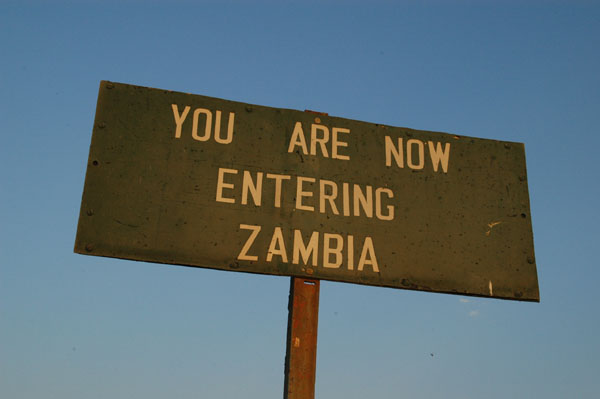A deep dive look at the state of Zambia’s tech ecosystem.
Earlier this month when pan-African e-commerce startup Wasoko announced its entry into the Zambian market Daniel Yu, founder and CEO of Wasoko, cited “high smartphone usage and a pro-business government administration keen on expanding the country’s digital economy” as the reason for setting up shop in the southern Africa nation.
Wasoko is not the only tech company to recently set up shop in “Zed”, as the country is affectionately known by its 19 million inhabitants. Subscription video on-demand platform Wi-flix, technology infrastructure company Liquid Intelligent Technologies, crypto exchange VALR, and fintech unicorn Chipper Cash have all entered the Zambia market in the last year.
So promising is the Zambia tech ecosystem that Vitalik Buterin, co-founder and inventor of Ethereum, the world’s second-largest cryptocurrency, has also expressed his support for its tech scene following a 2019 visit to the country and a virtual meeting with President Hichilema in 2022.
So what are they doing differently in Zambia that is making a lot of technology companies want to do business there? Sandi Chimpala, a tech blogger and CEO of TechTrends, a Zambian tech publication, agrees with Yu that the presence of an enabling environment has been the driving factor to the growth of the country’s tech sector.
“We’ve seen more of the government and other private sector stakeholders recognising the potential of technology in driving the country’s economic growth. Digitalisation initiatives, including e-governance on the part of the government, have really taken hold and although implementation is not always best, the effort is there,” Chimpala tells TechCabal on a call.
Government’s role in creating an enabling environment for digital transformation
When President Hakainde Hichilema delivered his maiden speech to the first session of the 13th National Assembly after assuming office in August 2021, he stated that his administration will mainstream digital revolution in national programmes in order to tap into the talents and creativity of Zambians.
“Government is keen to support innovation and creativity especially, which offer home grown solutions across all sectors of the economy,” President Hakainde stated.
Since then, the administration’s numerous digitalisation initiatives seem to be paying off dividends—setting up a Ministry of Technology and Science and implementation of policy measures to promote economic transformation especially in information and communication technology..
However, according to Zambia’s 2022 Inclusive Digital Economy Status report, produced in partnership with the UN Capital Development Fund (UNCDF), there is still much work to be done. The report indicates that the country has a digital divide of 47, meaning that 47% of Zambians are not digitally-included. While the gender digital divide stood at 34%, the rural digital divide—rural people without digital access—stood at 56%.
To tackle this lack of inclusivity challenge head-on, much effort is being put into bringing underrepresented groups, including rural dwellers and children, into Zambia’s digital transformation journey. This is according to Jane Chinkisu, director of science and technology under the Ministry of Science and Technology.
“There are currently active efforts currently ongoing to revamp our education system so that STEM skill sets are imparted to students at a young age. Additionally, we are also trying to improve ICT infrastructure in rural areas so that the people living there also have access to technology. All these efforts are to ensure that our people have technological prowess and that there is no skills gap which could promote a digital divide in the country,” said Chinkisu.
Although the progress has been below the set targets, it has been there nonetheless. According to data by Digital Portal, Zambia’s internet penetration stood at 21%, a total of 4.3 million internet users. Internet users in the country increased by 115,000, a 3% increase between 2022 and 2023.
Internet speeds in the country also increased quite significantly, with mobile internet connection speeds in Zambia rising by 25% and fixed internet connection speeds rising by 86%.
Private sector playing its part
Apart from the government’s efforts, there have also been intentional efforts from the country’s private sector players to support Zambia’s digitalisation agenda.
In November last year, MTN launched the first 5G network in the country to accelerate internet speeds in the country. The mobile network operator also introduced “MTN Data Smart”, a program that is designed to help Zambians “learn more about what the internet has to offer and how best to use it to their advantage.”
In April this year, Liquid Intelligent Technologies also entered into a memorandum of understanding (MoU) with the government of Zambia to provide connectivity to all Zambians through the launch of a new data centre “that will meet growing data-hosting demands from local businesses and hyperscalers.” The MOU also entailed the expansion of Liquid’s fibre network to connect more towns across the country, as well as the deployment of the physical infrastructure required to connect schools and clinics.
Other private sector players in the countries, including Absa Bank, Stanbic Bank, Airtel, as well as Cellulant, to mention a few, have also played their part in providing support for initiatives that promote the digital transformation agenda in the country. According to Chinkisu, the role of the private sector in helping the government to achieve the country’s digital transformation mandate cannot be overstated enough and seeing its importance, a significant lot is being done by the government to uphold the current trend of the sector’s participation in digitalisation.
“In terms of the private sector’s participation, we believe it is key in the country’s transformation and we are working on how to create incentives for them to continue their support. If the private sector continues to put up investments, we actually will be in a better place rather than the government struggling on its own,” she added.
A startup scene is brewing in Zambia
One area of the private sector that is doing all it can to digitally transform the country is the startup scene. Although the scene is still nascent and has not managed to attract hordes of venture capital, this has not slowed down the innovation activity in Zed.
Virtual debit card issuing startup Union54, a YCombinator alumnus that has so far raised over $15 million in venture capital funding, is probably the country’s most known startup.But there are others also making their mark. Zoona, a fintech founded in 2008, was acquired by fintech juggernaut Chipper Cash in November last year. The startup, which enables individuals and companies to pay and transfer to bank and mobile money providers in the country through cash using a network of over 450 interoperable agents, claims to have processed over $3 billion worth of transactions since launch.
Other startups from the country include Dot Com Zambia, an e-commerce marketplace which raised $500,000 in venture funding in 2015 when venture dollars were hard to come by even for startups in Africa’s major tech hubs. Zazu and Lupiya are also some venture-backed startups thathave come out of the country’s startup scene, which has cumulatively raised over $113 million according to data by StartupList Africa.
There are also startups who, although they have not been yet successful in raising venture capital, continue to innovate products which address some of the country’s most pressing socio-economic challenges. One of these is Ignitos Space, a space-tech startup which uses space technology via orbital satellites to provide farmers with insights about what kind of soil is on their land and what crops it is suitable for. Additionally, it equips farmers with information about their land’s water reticulation, the state of their crops, and so much more.
According to founder Ahmad Hamwi, although they have not been able to raise capital thus far, the country’s improving enabling environment gives them hope that a venture capital check might not be very far.
“A lot of things have changed for the better over the last two years. The economy is getting better in comparison to what it was before, and because of a maturing business environment, investors, both from within and outside the country, are showing a significant amount of interest in backing innovators in the country and that gives us hope that as long as we keep building our solution, something will give very soon,” said Hawsi in an interview with TechCabal.
Indeed for startups, things seem to be looking up. An example is the startup act already in the works which will support the country’s innovative minds by removing some taxes and other costs associated with doing business in Zambia. There are also innovation hubs stationed across the country, all with an aim to support the digital transformation drive.
One of these is BongoHive, a Lusaka-based hub which has driven much of the startup activity in the southern African country. Founded by Lukonga Lindunda and his co-founders in 2011, the facility was mandated to drive local innovation and ownership of solutions and support for these solutions.
The hub has structured programs targeting various sectors and various business stages and has partnered with the likes of the World Bank to bring them to fruition. BongoHive has recently partnered with Make-IT in Africa to launch an Open Innovation Program to engage Zambian startups in smart cities, green cities, and fintech sectors.
The program will provide startups with access to technical expertise, mentoring, and training to help them scale their businesses while connecting them with stakeholders such as government agencies, investors, and corporates.
Another major innovation in the country is Jacaranda Hub, which last year received support to the tune of K3.3 million (~$169,000) from Absa Bank to run innovation programs in Solwezi, a town in the North-Western Province.
For investors, the optimism about the country’s trajectory in technology is as strong as that of founders and other ecosystem players. According to Melanie Mchinzi, national coordinator of the Zambia Business Angel Network, which has made angel investments in the region of $15,000 to $100,000, citing the pitch decks that they receive, there is a significant amount of tech innovators looking for funding in the country.
“There is a sought of electric feeling that is spearing innovation as a result of a joint effort from both the government and private sector. Everyone, from students in grade 10 to tertiary students, wants to build something innovative. Of course from the investor side, there is still a lot of work to be done to turn these innovations into investable businesses but we have a lot of confidence and optimism that the country is really on the right track,” said Mchinzi to TechCabal.
Where to next for Zed?
The influx of foreign tech companies and startups into Zambia over the course of the last two years is a testament to the progress the country has made in its digital transformation journey. However, there is still a long way to go, and hence, more work to be done in other key areas.For example, fostering digital inclusivity and bridging the country’s digital divide, as well as making the country’s startup scene attractive to much-needed venture capital dollars.
A proverb in the Bemba language, one of the seven recognised regional languages in Zambia, goes “Akabangilile, katamba masha ya cungulo.” Loosely translated to English, this means “Good opportunity favours the active man.” Zambia’s tech ecosystem success story, up to this point, is an exact embodiment of this proverb. Despite not having the most conducive socio-economic conditions, the country has still managed to make significant traction, surpassing some of its peers who were dealt better cards over the last few years. To continue the trajectory, there is a need to further abiding by the aforementioned proverb—more effort.
According to Chimpala, for Zed to continue to soar, there is a need for innovators to create innovative solutions which address the country’s unique problems.
“There is a need for innovators to be strategic in how they are building for the Zambian economy or the Zambian ecosystem. Because of hype, there might be startups that are likely to copy what they’re seeing elsewhere and try and implement it here. And it won’t work because it will not be speaking to the local scenario,” she said.
For Hamwi, Zambia is very well placed to become the next major tech hub on the continent because of the amalgamation of numerous factors including effective innovation hubs, innovative entrepreneurs, and an enabling environment fostered by good governance.
“I really believe that the sky’s the limit for technology in Zambia. And because we have this new government that’s coming with new ideas and very open to collaboration, I believe we can become the main hub of southern Africa when it comes to technology,” he said.
Over and above all, the role of government in providing an enabling environment for innovation to take place is necessary. Without this, all the efforts by other ecosystem efforts will prove to be futile. Realising this, the Zambian government seems to be very much willing to provide this exact kind of environment.
“What we can say as a government is that, we are very much behind the idea of science, technology, and innovation being the driving force behind Zambia’s economic growth. We are trying by all means to create an environment where our people can innovate freely without many limitations. Digital transformation is vital to bettering the fortunes of this country and we are very much behind the enablers of it,” concluded Chinkisu.
With innovators, investors, and the government all seemingly on the same page with regard to advancing the country’s digital transformation ambitions, would it be safe to declare that Zed is very much open for business?
What do you think about our stories? Tell us how you feel by taking this quick 3-minute survey.





















